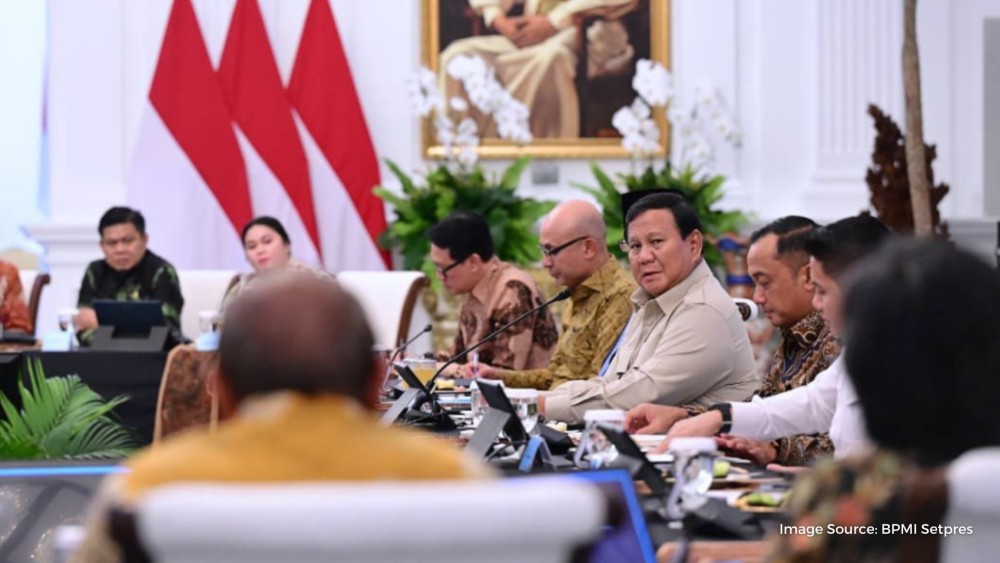Legal and Economic Pathways Under the Indonesia–EU CEPA
08 Aug 2025

The Indonesia–European Union Comprehensive Economic Partnership Agreement (IEU-CEPA), following nearly a decade of negotiations, marks a pivotal development in EU–Indonesia economic relations. With a political agreement reached in July 2025 and formal signing expected by September 2025, the agreement is projected to be ratified by 2027.
Agreement Overview
The IEU-CEPA is a comprehensive free trade agreement between the EU and Indonesia. It covers trade in goods and services, investment protections, intellectual property rights, and sustainable development provisions. Following 19 negotiation rounds through July 2024, the agreement builds upon the 2014 EU–Indonesia Partnership and Cooperation Agreement while advancing EU strategic interests in the Indo-Pacific region.
Impact on EU Trade and Investment
Market Access and Trade Liberalization
The IEU-CEPA eliminates tariffs on approximately 80% of Indonesian exports to the EU, covering key sectors including textiles, footwear, palm oil, fisheries, and electric vehicle battery components. For EU member states, this provides access to competitively priced raw materials while securing enhanced market penetration for European machinery, chemicals, and manufactured goods.
Germany, as Europe’s largest exporter of machinery and automotive products, is uniquely positioned to benefit. German exports to Indonesia, valued at EUR 2.5 billion in 2024, are expected to grow significantly due to tariff reductions and streamlined customs procedures. The agreement’s trade facilitation provisions, including simplified rules of origin, will reduce transaction costs for German exporters while ensuring compliance with WTO standards.
Investment Protection Framework
The agreement strengthens investment security through the Investment Court System (ICS), replacing the controversial Investor–State Dispute Settlement mechanism. This provides enhanced legal certainty for EU investors through transparent dispute resolution procedures. However, concerns persist regarding potential impacts on Indonesia’s regulatory sovereignty, particularly in the energy and mining sectors.
Germany, a major FDI source in Indonesian manufacturing and renewable energy, will benefit from the liberalization of service sectors including logistics, telecommunications, and financial services. Reduced foreign equity restrictions and national treatment provisions will facilitate German investments in Indonesia’s green economy initiatives and technology sectors.
Implementation Challenges
Despite its promise, the IEU-CEPA faces challenges from non-tariff barriers, particularly Indonesia’s local content requirements and the EU’s European Union Deforestation-Free Regulation (EUDR). The EUDR imposes due diligence requirements on commodities like palm oil, potentially constraining Indonesian exports. German importers dependent on Indonesian raw materials may face increased compliance costs and supply chain complexities.
Impact on Indonesian Trade and Investment
Export Competitiveness
For Indonesia, the agreement enhances export competitiveness by eliminating tariffs on 80% of goods entering EU markets. Priority sectors including textiles and processed palm oil benefit from immediate or phased tariff reductions, while EV battery components receive five-year liberalization schedules. This market access is particularly valuable given global trade uncertainties, supporting Indonesia’s trade diversification strategy.
Investment Attraction
The IEU-CEPA is expected to increase European FDI flows into Indonesia’s priority sectors, including renewable energy, life sciences, and ICT. Combined with Indonesia’s ongoing deregulation efforts, this creates an increasingly business-friendly environment consistent with President Prabowo’s competitiveness initiatives.
However, transparency concerns persist. Indonesian civil society groups argue that the agreement’s TRIPS-Plus intellectual property provisions may strengthen pharmaceutical patent monopolies, potentially limiting access to affordable medicines and impeding generic drug production.
Sustainability Considerations
The agreement includes provisions on trade and sustainable development, emphasizing environmental and labor protections. However, the absence of binding enforcement mechanisms raises questions about its effectiveness in addressing social and environmental impacts, particularly in Indonesia’s mining sector.
Strategic and Legal Considerations
Ratification Process
While Indonesia’s ratification is expected to proceed smoothly, the EU process requires approval from the European Parliament and all 27 member states, potentially delaying implementation until 2027. German policymakers should advocate for swift ratification to capitalize on early-mover advantages.
Balancing Objectives
Success depends on effectively balancing economic liberalization with social and environmental imperatives. For Germany and other EU states, ensuring compliance with international labor and environmental standards is essential for maintaining public support. Indonesia must address domestic sovereignty and public health concerns.
Indo-Pacific Strategy
The IEU-CEPA strengthens the EU’s geo-economic presence in the Indo-Pacific, countering competing agreements like RCEP and CP-TPP. For Germany, this reinforces its role in the EU’s economic security strategy, particularly regarding critical raw materials for the green energy transition.
Conclusion
The IEU-CEPA strengthens EU–Indonesia economic ties, offering the EU – particularly Germany – better access to Indonesia’s market and investment opportunities in key sectors like automotive and machinery. Indonesia benefits from economic diversification. Challenges, including non-tariff barriers, environmental regulations, and regulatory sovereignty, require open dialogue to ensure mutual gains. As ratification nears, German and Indonesian experts should align trade and sustainability goals for a fair, lasting partnership.
About the Author

News
RELATED ARTICLES











